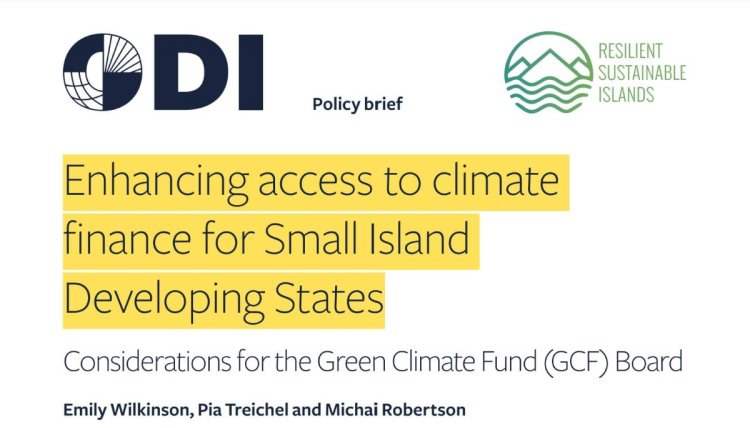Enhancing access to climate finance for Small Island Developing States
Considerations for the Green Climate Fund (GCF) Board

As the world’s largest multilateral climate fund, the Green Climate Fund (GCF) forms a crucial part of the global climate finance architecture. As an international entity entrusted with operating the global climate regime’s financial mechanism, the GCF has a legally binding mandate to ensure that Small Island Developing States (SIDS) are eligible for access. It also has a mandate to prioritise SIDS as it seeks to ensure efficient access and enhanced readiness support (Article 9.9 of the Paris Agreement, UNFCCC, 2015). The GCF must also take into account the priorities and needs of SIDS in providing finance (Article 9.4 of the Paris Agreement, UNFCCC, 2015).
Evidence shows, however, that access for SIDS to GCF funding has been slow and that this group of vulnerable countries has not been prioritised. The GCF’s own Independent evaluation of the relevance and effectiveness of the Green Climate Fund’s investments in Small Island Developing States (Chase et al., 2020) highlighted serious shortcomings. Three years later, in a context where the GCF has a new Executive Director and a new Strategic Plan (2024–2027), it is more important than ever to highlight the reasons why the GCF is not adequately serving SIDS and to make recommendations to help rectify this.
SIDS are particularly vulnerable to extreme weather events and slow-onset processes associated with climate change, including cyclones and hurricanes, changing temperature and rainfall patterns (bringing more intense flooding and drought), reduced availability of freshwater resources, sea level rise, coastal inundation and coral reef loss. They have low capacity to respond to these changes because of their unique combination of circumstances and constraints, which include small land area, small economies, small population, geographical remoteness, inherent vulnerabilities and high transaction/operational costs (Bishop et al., 2021). Given this vulnerability, SIDS have long been active and sophisticated agents in the international climate response, advocating for increased international support for climate action (Ourbak and Magnan, 2017; Corbett et al., 2021). But this has not resulted in them receiving higher levels of finance for climate resilience compared with other groups of countries (Wilkinson et al., 2023).






